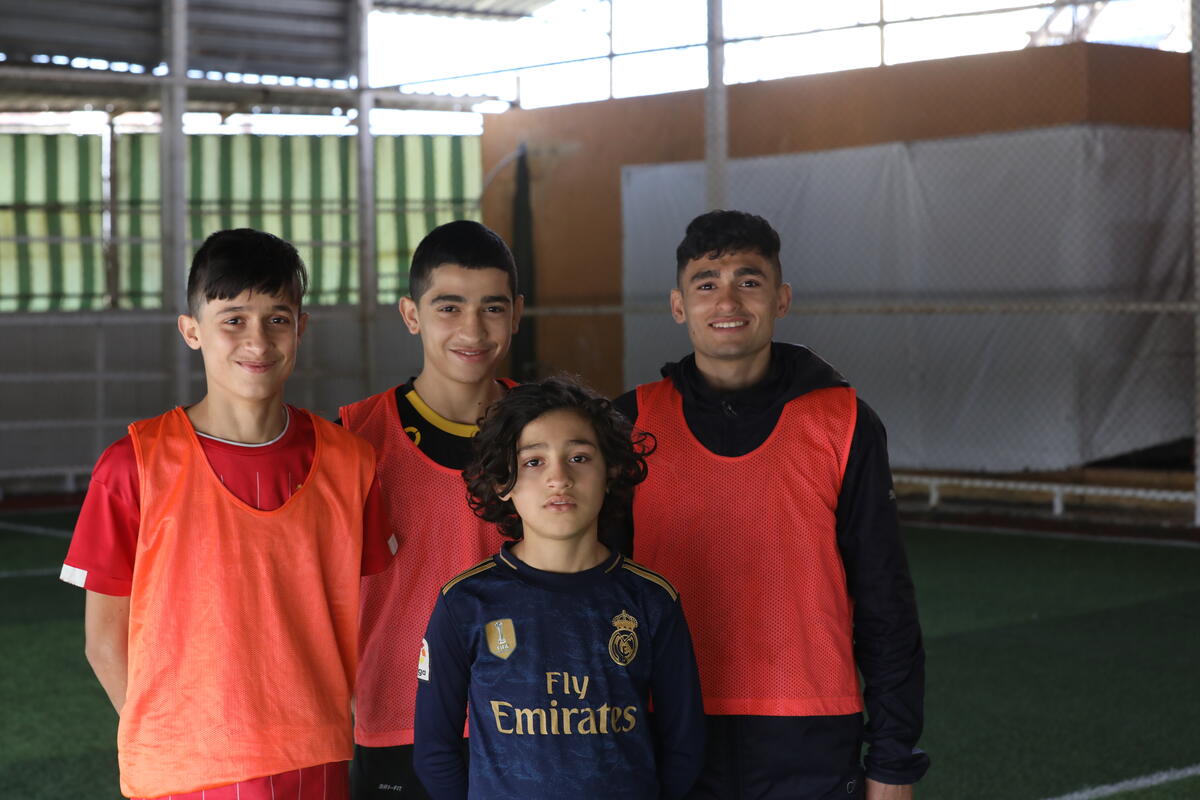UNHCR gives Syria US$2.06 million to boost health care facilities and skills
UNHCR gives Syria US$2.06 million to boost health care facilities and skills

DAMASCUS, Syrian Arab Republic, May 1 (UNHCR) - The UN refugee agency has signed an agreement with the Syrian government to provide the country's Ministry of Health with US$2.06 million for the rehabilitation of public hospitals in Damascus, capacity-building for medical staff and the provision of new medical equipment.
The donation is in addition to 11 ambulances that UNHCR is delivering to the Ministry of Health, Syrian Arab Red Crescent and the Palestinian Red Crescent.
This agreement, the fourth between UNHCR and the Syrian government, is part of UNHCR's commitment to support the country's response to the crisis of Iraqi refugees. Since the beginning of the year, UNHCR has committed a total of US$9.6 million in agreements with the Syrian Arab Red Crescent, the Ministry of Education and the Governorate of Al Hassake.
The funds are being used to rehabilitate 70 schools and build three new ones; to provide thousands of Iraqi schoolchildren in Syria with textbooks and other supplies; to construct a new hospital in Damascus; to support nine health clinics; and to provide food to Palestinian and Iraqi refugees.
Earlier this year, UNHCR established a new registration centre for Iraqi refugees in Douma, 25 kilometres from Damascus. To date, the office has registered 77,683 Iraqi refugees. During registration, the most vulnerable of the refugees are identified for further medical assistance, community services and resettlement.
"UNHCR recognizes that the large number of Iraqis living in Syria creates a significant burden on the infrastructure and economy of the country. We commend the Syrian government for continuing to offer Iraqis a safe place to stay and we are committed to supporting the Syrian government with this," Laurens Jolles, UNHCR's representative in Syria, said of the aid.
Last month, UNHCR organized an international conference in Geneva on addressing the humanitarian needs of refugees and internally displaced persons inside Iraq and in neighbouring countries. The conference called on the international community to support governments of neighbouring countries, mainly Jordan and Syria, who are shouldering the burden of hosting more than 2 million refugees fleeing violence in Iraq. UNHCR also appealed to all host countries, including those further afield, to continue providing protection, humanitarian assistance and hospitality to Iraqis until conditions have been created to enable voluntary return.
An estimated 2 million Iraqis are currently displaced within their country, while another 2 million are believed to have fled to nearby nations. The Syrian government estimates that 1.4 million Iraqis have taken refuge in Syria in the last three years. An estimated 40,000 to 50,000 Iraqis are fleeing their homes monthly.
In January, UNHCR launched a US$60 million appeal to fund its programmes this year aimed at helping hundreds of thousands of refugees and internally displaced people affected by the conflict.
While the initial UNHCR appeal has been met, the needs in the region go far beyond the refugee agency's programmes. It reiterated Tuesday a call for more international help for the neighbouring countries to ensure that they will continue to keep their borders open to those in need of refuge.
By Sybella Wilkes in Damascus, Syria









